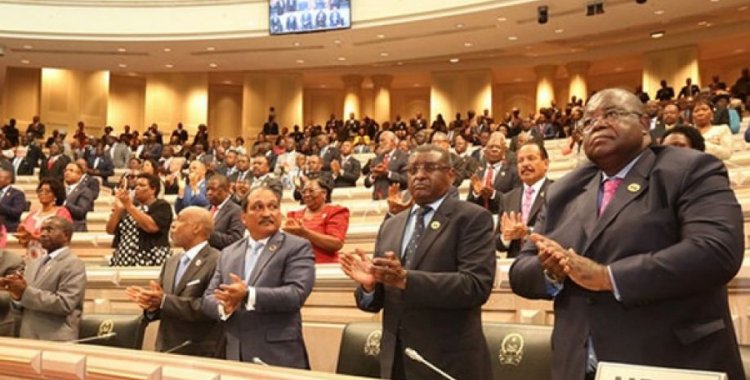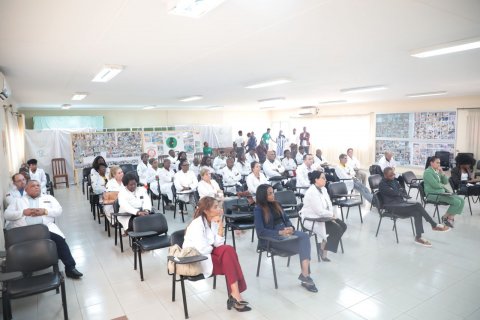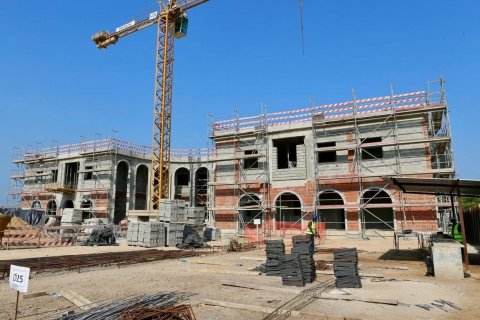This year marked the beginning of the colonial war, which lasted 13 years and began in Angola. The position was expressed during the discussion, in the specialty, of the proposed Law of the Special Regime of Justification of Deaths Occurring as a Result of Political Conflicts.
The draft law is a government initiative following the approval of the Plan for Reconciliation in Memory of Victims of Political Conflicts that occurred in Angola between 11 November 1975 and 4 April 2002, and there was therefore a need to register deaths and issue certificates in favour of victims during the period in question.
The draft law also arises from the need to speed up and simplify the process of justifying death, removing bureaucracy and decentralizing powers, in order to save the efforts of family members interested with the current procedure, established in Decree No. 91/81, of 25 November.
In the discussions, the deputy of the parliamentary group of the Popular Movement for the Liberation of Angola (MPLA), João Pinto, said that "to reach November 11 there was a struggle".
"How can we have 11 November without having (19)61, is not possible," said João Pinto, during the debate, reported by Angolan public radio, suggesting that at the time of regulation "the President could resolve the issue.
For her part, Albertina Ngola, member of the National Union for the Total Independence of Angola (UNITA), stressed that it was necessary to recognize that in order to achieve independence Angolan citizens had lost their lives.
"We did not exist yet, the elders know where they went through, so I think it is worthy to assume here that, if it is certification, the necessary steps must be taken and we can go back to 61. If it is conflict, in order to achieve independence we had to opt for conflict, nobody gave us independence on a plate," she stressed.
Congressman André Mendes de Carvalho ("Miau") of the Convergência Ampla de Salvação de Angola - Coigação Eleitoral (CASA-CE), in the same vein, considered that "it is not possible to make an analysis of these processes without looking back".
"And 1961, from our point of view, is a good milestone. And why should this also be our line of action? So that cases of the same kind are not repeated. We can't compromise an in-depth analysis, so that identical cases don't happen again. It's good to make that clear, nobody wants revenge, that's not the point", he stressed.
In presenting the draft law for general approval, the minister of justice and human rights, Francisco Queiroz, said the document aims to eliminate the mandatory recourse to the judicial route, being possible to declare death through exceptional administrative procedures to obtain death certificates.
Francisco Queiroz explained that the future law allows the request, in writing or verbally, to be made to any registry office, provincial or municipal delegation of the civil registry, the municipal or communal administrations of the area of residence and proof of death issued by the commission to be created, may waive other steps for the establishment of the facts.
The ruler also stressed that the proposal aims to create a special regime for the issuance of death certificates in cases where it has not been possible to comply with such a legal formality so far.
One of the situations in which there is enough complaint of relatives has to do with the 27 of May of 1977, date of an alleged failed coup against the first President of the country, António Agostinho Neto, who led to thousands of deaths in extra-judicial executions, according to several analysts and survivors.
The holder of the portfolio of Justice and Human Rights stressed that in the war period, occurred in Angola "episodes of violence that generated many deaths without the relatives of the deceased could record the deaths and obtain the issuance of their certificates.
According to the Minister, there were consequences in the lives of surviving relatives, in particular issues related to paternity, widowhood, contraction of second nuptials, hereditary regime, ownership of property and its transmission by death.
The law in force on this matter, emphasized the Minister at the time, requires the judicial appeal when any evidence of the alleged facts is missing, and the processes sometimes take years to make the judicial registration of death in these circumstances and obtain the respective death certificates.
The legislative proposal, with five chapters and 19 articles, will go to the final overall vote at the next plenary meeting scheduled for next Wednesday.







